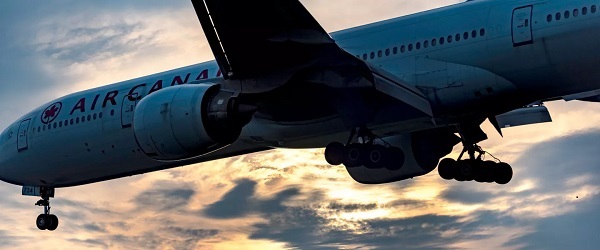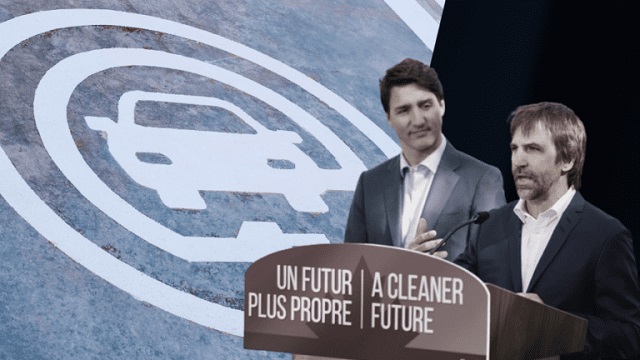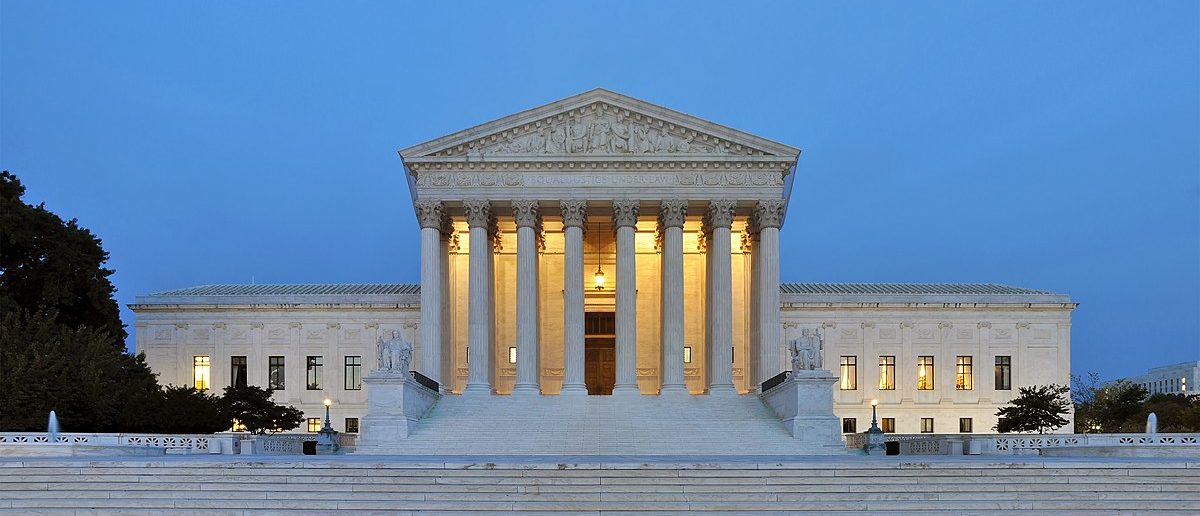Business
Bad federal policy helps increase airfare in Canada

From the Fraser Institute
By Jake Fuss and Alex Whalen
Canadian air travel can be summed up in a few words—poor service, high ticket prices and little choice. And as a federal election looms, Canadians should understand that bad federal policy is to blame.
According to the International Air Transport Association, Canada ranks 101st out of 116 countries for the cost of air travel. And customer complaints against Canadian airlines have grown more than sixfold between fiscal years 2018/19 and 2022/23.
Why are ticket prices so high?
For starters, taxes and fees (imposed by governments and airports) comprise a large portion (25 to 35 per cent) of airfare costs in Canada. For example, “airport improvement” fees average $32.20 per departing passenger at Canada’s largest airports compared to $6.47 in the United States and $16.38 in Australia. For air traffic control (ATC), airlines pay charges based on distance, geography and other factors, and these costs are passed to consumers. In one illustrative example, to fly a Boeing 777 in Canada, airlines must pay an estimated $802 in ATC fees compared to between $192 and $478 in the United States and $493 in Mexico (all figures in Canadian dollars).
Moreover, Canadians pay between $9.46 and $34.42 per ticket in “security” fees, more than Americans (C$7.65) and Australians (C$4.80). Canada’s “landing” fees—charged by the airports based on the weight of the plane—are among the highest in the world and 35 to 75 per cent higher than at U.S. airports.
Our high fees originate in part due to Canada’s flawed airport ownership structure. The federal government owns the land where Canada’s major airports are built, and leases it back to not-for-profit airport authorities that pay rent—up to 12 per cent of airport revenue—to Ottawa. The airports impose fees on passengers to recoup this revenue.
But while fees help increase costs for airfare in Canada, another culprit is the lack of competition among airlines. Crucially, the federal government prevents foreign airlines from operating domestic routes within Canada’s borders, which severely limits choice and competition. While the government allows a foreign airline such as Lufthansa to fly from Frankfurt to Toronto, it prevents Lufthansa from flying passengers from Toronto to another Canadian city. As a result, there’s little competitive pressure for Canadian airlines to lower their prices for air travel within Canada’s borders.
The European Union, in contrast, removed such restrictions for member-states. The result? More competition including from new low-cost carriers such as Ryanair, a 34 per cent decline in ticket prices, more cross-border routes, and greater flight frequencies. The entry of new low-cost carriers alone helped lower airfares by 20 per cent.
Given the sorry state of air travel in Canada, our new study identifies four ways the federal government can improve competitiveness and lower airfare.
First, the government should reduce taxes and fees to be more in line with other countries. Second, the government should negotiate deals with other countries including the United States to allow foreign airlines to operate within Canada in exchange for Canadian airlines operating in those countries, which would help both Canadian consumers and Canadian airlines. Indeed, according to a 2016 report from the federal government, restrictions on foreign airlines increase air travel costs for Canadians and have outlived their usefulness. The report recommended Canada work towards an “open common market for air services” with peer countries. The key is reciprocity—if U.S. airlines, for example, are allowed access to the Canadian domestic air travel market, Canadian airlines must also have access to the U.S. market.
Third, the federal government should follow in the footsteps of Europe, Australia and New Zealand, and sell its remaining interests in airport leases and allow for-profit organizations to own and operate airports in Canada.
Lastly, the government should reduce the regulatory burden on the airline industry while maintaining strong safety standards. On this front, Canada can emulate the successful deregulation effort undertaken in the United States in the late 1970s and 1980s when widespread reform helped produce more competition, more consumer choice, lower fares and safety improvements.
Canadians will likely head to polls sometime this spring. If the next federal government wants to help improve air travel service quality, increase consumer choice and lower airfares, it should reform Canada’s antiquated airline policies.
Business
Senator wants to torpedo Canada’s oil and gas industry

From the Fraser Institute
Recently, without much fanfare, Senator Rosa Galvez re-pitched a piece of legislation that died on the vine when former prime minister Justin Trudeau prorogued Parliament in January. Her “Climate-Aligned Finance Act” (CAFA), which would basically bring a form of BDS (Boycott, Divestment, and Sanctions) to Canada’s oil and gas sector, would much better be left in its current legislative oblivion.
CAFA would essentially treat Canada’s oil and gas sector like an enemy of the state—a state, in Senator Galvez’ view, where all values are subordinate to greenhouse gas emission control. Think I’m kidding? Per CAFA, alignment with national climate commitments means that everyone engaged in federal investment in “emission intensive activities [read, the entire oil and gas sector] must give precedence to that duty over all other duties and obligations of office, and, for that purpose, ensuring the entity is in alignment with climate commitments is deemed to be a superseding matter of public interest.”
In plain English, CAFA would require anyone involved in federal financing (or federally-regulated financing) of the oil and gas sector to divest their Canadian federal investments in the oil and gas sector. And the government would sanction those who argue against it.
There’s another disturbing component to CAFA—in short, it stacks investment decision-making boards. CAFA requires at least one board member of every federally-regulated financial institution to have “climate expertise.” How is “climate expertise” defined? CAFA says it includes people with experience in climate science, social science, Indgineuous “ways of knowing,” and people who have “acute lived experience related to the physical or economic damages of climate change.” (Stacking advisory boards like this, by the way, is a great way to build public distrust in governmental advisory boards, which, in our post-COVID world, is probably not all that high. Might want to rethink this, senator.)
Clearly, Senator Galvez’ CAFA is draconian public policy dressed up in drab finance-speak camouflage. But here’s what it would do. By making federal investment off-limits to oil and gas companies, it would quickly put negative pressure on investment from both national and international investors, effectively starving the sector for capital. After all, if a company’s activities are anathema to its own federal regulators or investment organs, and are statutorily prohibited from even verbally defending such investments, who in their right minds would want to invest?
And that is the BDS of CAFA. In so many words, it calls on the Canadian federal government to boycott, divest from, and sanction Canada’s oil and gas sector—which powers our country, produces a huge share of our exports, and employs people from coast to coast. Senator Galvez would like to see her Climate-Aligned Finance Act (CAFA) resurrected by the Carney government, whose energy policy to-date has been less than crystal clear. But for the sake of Canadians, it should stay dead.
Automotive
Opposition Conservatives fail in attempt to “Pull the Plug” on Carney’s Electric Vehicle Mandate

From Conservative Party Communications
After a Lost Liberal Decade of rising costs and slow growth, Mark Carney wants you to think his government has moved on from Justin Trudeau’s failed policies.
Unfortunately for Canadians, Carney has no interest in scrapping one of his predecessor’s most reckless and costly ideas: a zero-emissions vehicle (ZEV) mandate starting next year that will ultimately ban Canadians from buying gas-powered cars by 2035.
As the required percentage of ZEV sales increases each year, the government wants to force manufacturers and importers to buy costly credits of up to $20,000 for every EV they are short of the Liberals’ quota – a huge expense that will ultimately be passed on to, and paid by Canadian consumers.
That’s why Conservatives have introduced a motion to end this harmful scheme, ensuring Canadians can continue to buy the kind of car they need at a price they can afford.
EVs are great for many families, who should always be free to purchase the vehicle of their choice. But for many Canadians – who live in cold environments or travel long distances – they can be practically useless, especially without the infrastructure to power them.
One government report estimated that changes to Canadian infrastructure required to support a transition to ZEVs could cost up to $300 billion by 2040. On top of the costs already imposed on manufacturers and buyers, this policy will require billions in new tax dollars and government debt.
No wonder one 2024 survey found two thirds of Canadians find the 2035 target is unrealistic.
As unjust tariffs threaten an automotive sector which contributes billions to our GDP, the Liberals continue to put their elitist, top-down ideology ahead of the livelihoods of hundreds of thousands of proud Canadian workers.
While Carney talks about change, Conservatives are here to deliver. That’s why we’re fighting to repeal the ZEV mandate, scrap the industrial carbon tax and cancel Liberal fuel standards. We trust Canadians – not Ottawa’s Liberal elite – to make the best decisions for themselves and their families.
It’s time to put Canadians back in the driver’s seat.
-

 espionage18 hours ago
espionage18 hours agoFrom Sidewinder to P.E.I.: Are Canada’s Political Elites Benefiting from Beijing’s Real Estate Reach?
-

 conflict2 days ago
conflict2 days agoTrump dismisses US intelligence that Iran wasn’t pursuing nuclear bomb before Israeli attack
-

 Censorship Industrial Complex2 days ago
Censorship Industrial Complex2 days agoJordan Peterson reveals DEI ‘expert’ serving as his ‘re-education coach’ for opposing LGBT agenda
-

 Alberta2 days ago
Alberta2 days agoUnified message for Ottawa: Premier Danielle Smith and Premier Scott Moe call for change to federal policies
-

 Business1 day ago
Business1 day agoCanada’s critical minerals are key to negotiating with Trump
-

 Business1 day ago
Business1 day agoRFK Jr. planning new restrictions on drug advertising: report
-

 Education2 days ago
Education2 days agoStudents can’t use AI to cheat on standardized tests
-

 Daily Caller21 hours ago
Daily Caller21 hours agoUnanimous Supreme Court Ruling Inspires Hope For Future Energy Project Permitting









